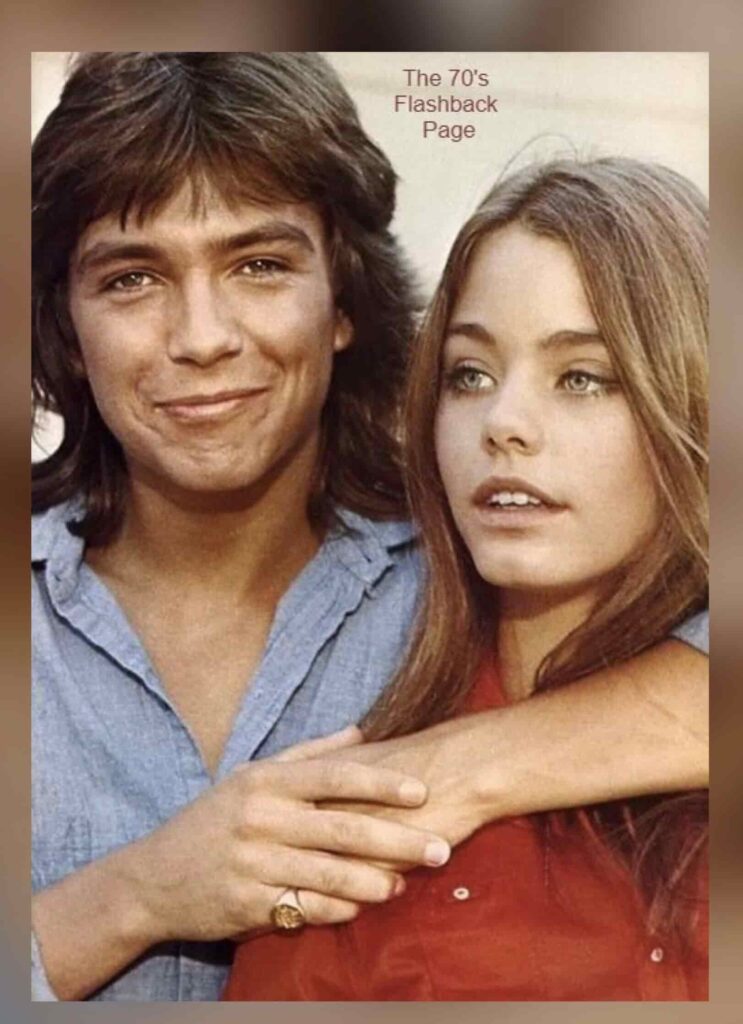
A Beacon of Hope Amidst Teenage Dreams: “Tomorrow” by David Cassidy
Ah, David Cassidy. The name itself conjures images of posters on bedroom walls, the sigh of teenage adoration, and the infectious energy of pop music that defined an era. Among his many chart-topping hits, “Tomorrow” stands out not just for its commercial success but for the gentle optimism it offered to a world often perceived through the dramatic lens of youth. Released in the autumn of 1972, this poignant ballad swiftly climbed the Billboard Hot 100 charts, peaking at a respectable number nine. In the United Kingdom, where Cassidy’s fame arguably reached even greater heights, the song resonated deeply, nestling comfortably within the top ten as well. At a time when the world felt both exhilarating and uncertain, “Tomorrow” provided a comforting promise of brighter days ahead.
The story behind “Tomorrow” is as charmingly straightforward as the song itself. Penned by Tony Romeo, the creative force behind many of The Partridge Family‘s memorable tunes, the song was featured on Cassidy’s second solo album, the aptly titled “Rock Me Baby”. This album marked a significant step in Cassidy’s career, solidifying his position as a solo artist beyond his television persona. While The Partridge Family provided the platform for his initial fame, his solo work allowed him to explore a more mature and nuanced musical landscape. “Tomorrow”, with its understated arrangement and heartfelt delivery, perfectly encapsulated this evolution.
Lyrically, “Tomorrow” speaks to the enduring human need for hope and reassurance. It’s a tender declaration of unwavering support and the promise of a better future, particularly in the face of present anxieties or sorrows. Lines like “Tomorrow, when the world is new / I’ll still be loving you” offer a simple yet profound message of constancy and devotion. For a young audience navigating the complexities of first love, friendship, and the uncertainties of growing up, this message was incredibly powerful. Cassidy’s earnest vocals, devoid of excessive embellishment, lent an air of sincerity to the lyrics, making the promise of a brighter “Tomorrow” feel genuinely attainable.
Beyond its immediate appeal, “Tomorrow” holds a special place in the tapestry of early 1970s pop music. It represents a softer side of the teen idol phenomenon, a departure from the more bubblegum sounds that often dominated the airwaves. The gentle acoustic guitar intro, the subtle orchestration, and the overall melancholic yet hopeful tone showcased Cassidy’s versatility as an artist. It proved that he was more than just a pretty face; he was a capable vocalist who could convey genuine emotion through his music.
Looking back, “Tomorrow” serves as a gentle reminder of the enduring power of optimism and the comfort found in simple assurances. It’s a song that evokes a sense of nostalgia for a time when teenage dreams felt both intensely personal and universally shared. The crackle of a vinyl record, the soft glow of a bedside lamp, and the hopeful whisper of a song promising a brighter “Tomorrow” – these are the memories that this timeless ballad gently stirs within the hearts of those who grew up with David Cassidy as their guiding star. It wasn’t just a song; it was a comforting embrace set to music, a promise whispered across a generation that even when today felt uncertain, “Tomorrow” held the promise of something better.